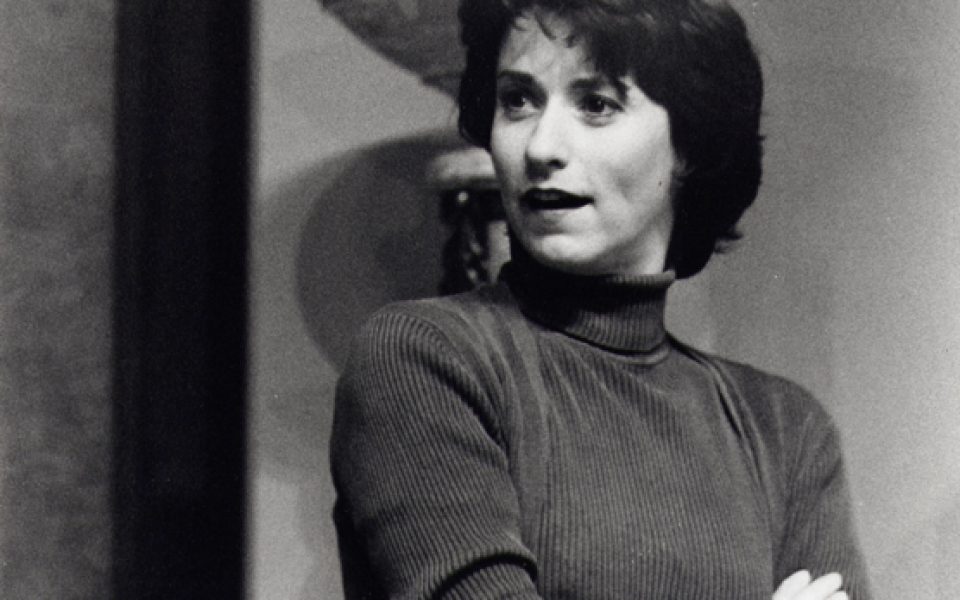When Josephine Hall walked into her audition for the Tony Award-winning play The Curious Incident of the Dog in the Night-Time, she had no idea that she would be auditioning for the casting director of Lincoln Center, Daniel Swee.
While Hall has yet to perform on the Broadway stage, she possesses 25 years of experience that includes television and film, British, regional and musical theater. She is also in her fifth year of teaching at Greensboro college as an assistant professor in theater.
Going into an Equity Principle Audition, many performers find that roles have often been fully casted and the open call is being held as a union requirement. For an actor without agent representation and professional Broadway experience cred, chances for a callback can be even slimmer. Unbeknownst to Hall, she would receive more than a request to return.
On Hall’s third callback, she was asked to audition for five roles in front of Swee and Tony Award winning director, Marianne Elliott.
“To be able to go in there and audition for five completely different characters in front of the director and the casting director,” Hall said, “truthfully, that was enough for me at that point.”
Evidently Hall’s performance was also enough for the casting committee of The Curious Incident of the Dog in Night-Time. She is scheduled to take a 13-month sabbatical from Greensboro College to embark on a US national tour with the Royal National Theater. Hall will travel with the company as an understudy for five characters, two being leading roles, for engagements in more than 30 theaters.
The play is built around a mathematical genius who is thought to be autistic. Christopher John Francis Boone, played by Julliard graduate Alex Sharp, is accused of murdering the neighborhood dog after he happens to have discovered the poor animal’s remains. Boone spends the span of the play proving his innocence while simultaneously making a rather interesting discovery.
For Hall, this type of experience, helps to enhance the real world knowledge she is able to hand down to her students.
“How can you teach without the real world experience?” Hall asked. “This is a business, and they have to go out and find work.”
She said teaching, in turn, also makes her a better actor.
“Teaching helps my acting,” Hall said.” Because I have to break down what I am doing into words in order to teach it. That hones my skill as well.”
Hall laughed at the notion that “those who can’t do, teach.” Her resume she is living proof that one can do both.
Despite knowing that she cannot remain on the road forever, Hall is not thinking about her plans at the end of the tour. Currently her foremost thoughts, consist of travel logistics. She is simply grateful to know that she has a home with Greensboro College when the curtain closes on this production for the final time, commenting that many colleges might not have allowed her to take time off for this type of opportunity and return.
On Monday, Hall, assistant professor and actor, will find herself on a detour this academic season. While her husband, who will go on to direct Sugar, will return to teach at Greensboro College. Hall had planned to direct her favorite play, Much Ado About Nothing, at Greensboro College this year. Instead, a replacement will handle the directorial duties.
Sometimes the best lessons are those not always planned.
Join the First Amendment Society, a membership that goes directly to funding TCB‘s newsroom.
We believe that reporting can save the world.
The TCB First Amendment Society recognizes the vital role of a free, unfettered press with a bundling of local experiences designed to build community, and unique engagements with our newsroom that will help you understand, and shape, local journalism’s critical role in uplifting the people in our cities.
All revenue goes directly into the newsroom as reporters’ salaries and freelance commissions.


In 2009 Mark Haddon claimed in an uncapitalized blog post that ‘curious incident is not a book about asperger’s [sic]’, that he knows ‘very little about the subject’ and that he did no research for the novel. Write to the National Theatre and in their reply they’ll stress that Christopher Boone never specifies the condition beyond using the phrase ‘Behavioral Problems’ and that audiences can interpret the character however they please. This position allows them to profit from public interest in autism without taking responsibility for how they represent the condition.
Haddon and the National Theatre have good reasons for denying the central selling point of their story – Christopher Boone embodies some of the most harmful myths about autism. His existence unravels his parent’s marriage, he is incapable of empathy and incredibly violent. And who could forget that Christopher’s favorite fantasy is the extinction of mankind? Click the first result you get when you google “Curious Incident + Bartmess” to learn why you should hate the book.
Please never refer to Christopher Boone as autistic, being on the autistic spectrum or having Asperger’s Syndrome without mentioning Mark Haddon’s official statement on the matter, or how the autistic community has reacted to the book. To do otherwise is to perpetuate an awful stereotype that feeds into the discrimination that makes life needlessly difficult for autistics like me. Linking to Haddon’s blog post would be enough, at a pinch.